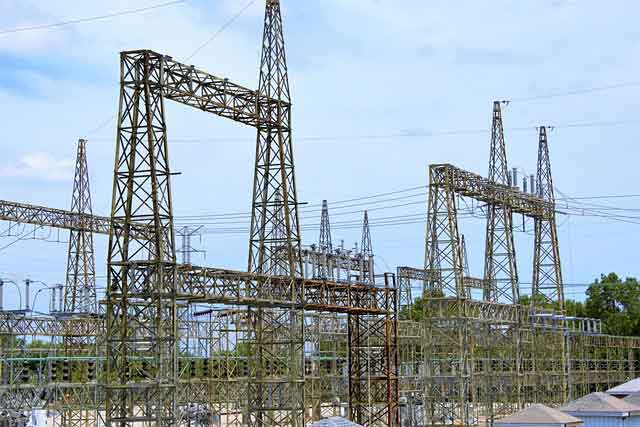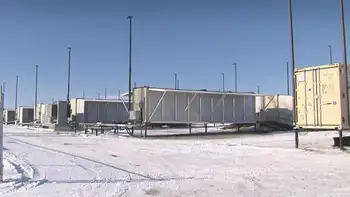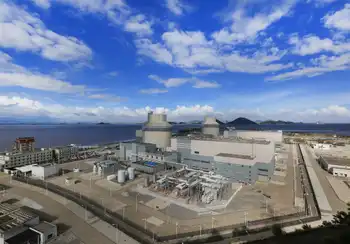Japan's utilities to increase oil use by 10.5% in 2009-10
By Platts
Arc Flash Training - CSA Z462 Electrical Safety
Our customized live online or in‑person group training can be delivered to your staff at your location.

- Live Online
- 6 hours Instructor-led
- Group Training Available
Lower nuclear power generation rates have also propped up the total oil demand estimate for the current fiscal year, a survey of the 10 major power companies showed.
Total oil demand by nine of the 10 utilities is expected to be 18.71 million kiloliters (117.6 million barrels) in 2009-2010 compared with 16.92 million kl in 2008-2009, according to data released by them.
LNG demand from these nine utilities is expected to be down 7.4% at 34.18 million metric tons in 2009-2010 compared with 36.92 million mt in the previous fiscal year.
The above figures exclude data from Kansai Electric, Japan's second largest power company, which did not give its feedstock breakup.
Kansai Electric officials said the company's coal, oil and LNG demand is expected to slip 23% year on year to 8.55 million kl of oil equivalent in fiscal 2009-2010 from 11.09 million kl in 2008-2009 due to a slowdown in power demand.
Tokyo Electric Power Company, Japan's largest power utility with a total generation capacity of 61,835 MW, on March 31 said it would use more oil and less LNG in fiscal 2009-2010 as there was more flexibility in adjusting oil purchases vis-a-vis LNG.
Tepco said it expected oil demand to go up 22.7% year on year to 10.8 million kl in the new fiscal year, while the utility's LNG demand is expected to fall 9% to 17.4 million mt. Tepco's higher oil demand estimate has accounted for most of the 10.5% jump in total oil demand by utilities.
Tepco's higher oil demand projections are also based on the assumption that the company's earthquake-hit 8.212 GW Kashiwazaki-Kariwa nuclear power plant will remain shut through fiscal 2009-2010. The plant has been shut since July 2007.
However, there are strong chances that two of the nuclear reactors at the power plant could start up within this fiscal year, local industry sources said, adding that they did not think Tepco's oil demand would surpass 10 million kl in 2009-2010.
In fact, Tepco has only placed orders for 3.5 million kl of crude and fuel oil for fiscal 2009-2010 with Japanese refiners and trading houses, Platts reported earlier.
Tohoku Electric, the country's fifth-largest, has almost doubled its oil demand projections from 1.09 million kl in 2008-2009 to 2 million kl in the current fiscal year to compensate for a 18.20% drop in LNG demand to 2.7 million mt, the company said.
Shikoku Electric, meanwhile, has lifted its oil demand estimates by 26% to 870,000 kl for 2009-2010 due to lower generation from its coal and nuclear power plants.
However, not all power utilities are shifting away from LNG. Chugoku Electric said it will consume 1.9 million mt of LNG in 2009-2010, up 20% from 1.58 million mt in the previous fiscal as it brings online a new 285 MW gas-fired power plant in Mizushima this month. Chugoku's oil demand is expected to fall 3% to 1.95 million kl in the current fiscal year.
Separately, Hokuriku Electric and Hokkaido Electric have cut oil use by 12.5% and 50%, respectively due to higher nuclear power generation rates.
Looking at overall oil and LNG demand estimates by Japanese power utilities, excluding Kansai Electric, the data shows that power producers are expected to consume 93.56 million kl of oil and LNG in 2009-2010, down 4.3% from 97.77 million kl in 2008-2009.
The drop can be attributed to a slowdown in power demand led by the economic downturn, said to be the most severe in the country's postwar history.
Most power utilities have forecast a drop in power sales in fiscal 2009-2010.
In February 2009, the total power generated by the 10 utilities fell 15.8% year on year to 74,468 GWh as demand from large industrial customers fell, the Federation of Electric Power Companies said in its latest report.
This was the seventh consecutive year-on-year decrease in total power output by the utilities since August 2008. The 10 power companies have a combined electricity generation capacity of 201,333 MW.
With the Japanese economy forecast to contract by 6.6% in 2009 and business confidence at a record low, power demand is unlikely to recover anytime soon. The economy shrank by 12% in the last quarter of 2008.











